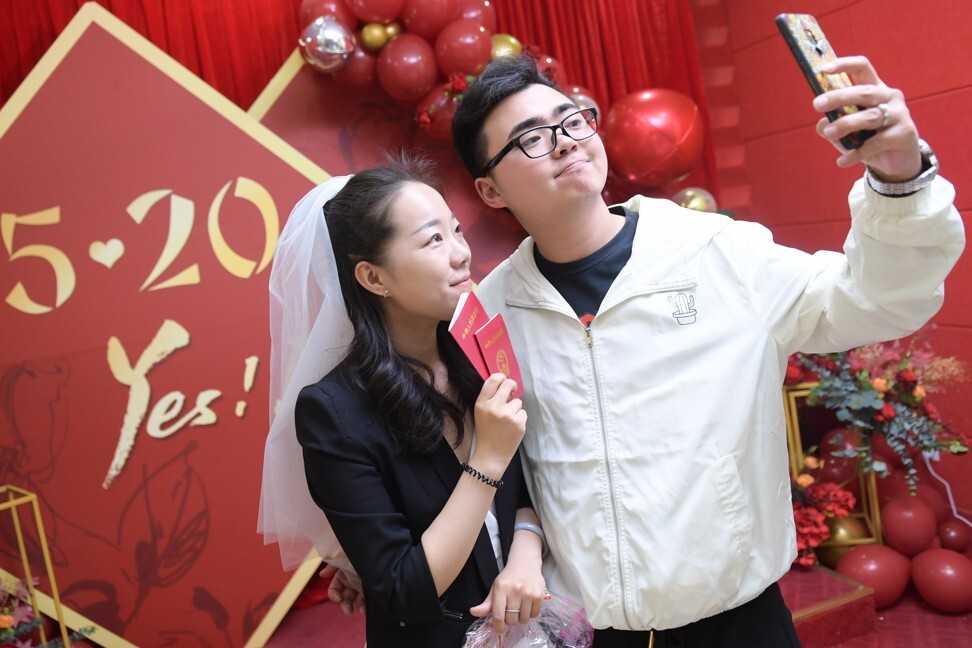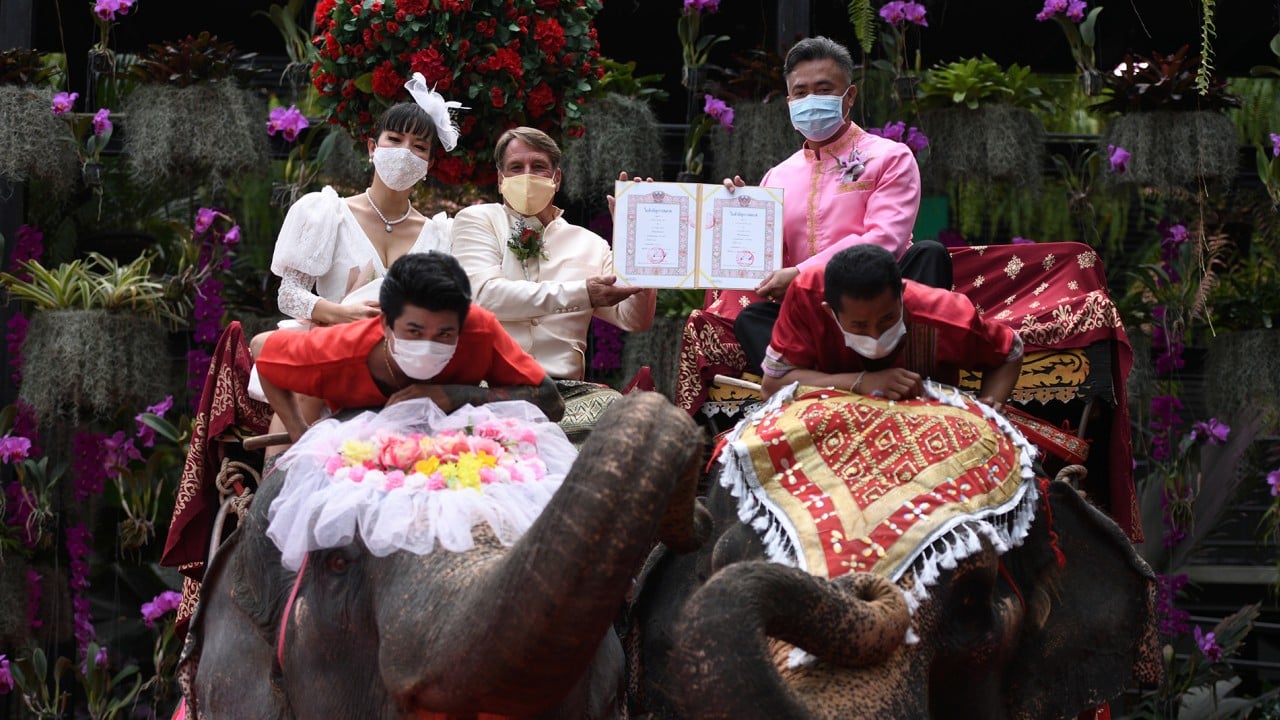
Materialism takes centre stage during Chinese Valentine’s Day as people use the love language ‘easily and directly’
- There are now several Valentine’s Days in China apart from February 14
- Gift buying as an expression of love is a major part of emerging customs these days
In China, May 20 or 520, which when pronounced sounds similar to saying “I love you” in Mandarin, is a Chinese version of Valentine’s Day which has become increasingly popular as a day to express love.
Bao said on each of the different Valentine’s Days her boyfriend will either send her gifts, such as jewellery, cosmetics or handbags, or take her to dinner at a luxury restaurant.
“I value the sense of ceremony,” she said. “He did this to show his love for me.”

Throughout the year, mainland China celebrates various Valentine’s Days, including the Western day of February 14, the traditional Chinese Qixi Festival, May 20 and March 14 —when pronounced in Mandarin, the date sounds like “love you my whole life”. Some people also regard September 9 as an important day to mark their love since the number nine represents eternity in traditional Chinese culture.
Experts said these holidays are heavily promoted by businesses selling gifts and experiences such as dining and travel, and that, as a result, Chinese people have become more comfortable with expressions of love but increasingly associate this with spending and consumerism.
“Enterprises’ marketing strategy is to attract consumers’ attention and arouse their desire to buy. Therefore, companies need to create opportunities and reasons for consumers to buy [their products],” Xiong Guoyue, an associate professor at the School of Economics and Management at Tongji University in Shanghai, told the South China Morning Post. “It is why those different festivals are coined and celebrated.”
“Consumer demand for those festivals have been greatly amplified while their promotion activities have been helpful to boost sales revenue in the short term.”
Zeng Wei, a 30-year-old man in Ganzhou, Jiangxi, said he would transfer cash to his wife on May 20 this year.

01:40
Couples celebrate Valentine’s Day mass wedding while riding elephants in Thailand
“I have bought gifts or sent red envelopes containing money to my wife on the days including February 14, our wedding anniversary, Mother’s Day, her birthday and Qixi Festival,” said Zeng.
Zeng said once when they quarrelled, he transferred 520 yuan (US$80) to his wife, seeking her forgiveness, which resolved the fight, he claimed.
“She is satisfied and I am happy, too,” he said.
In China, expressions of love have traditionally been subtle and avoided outright declarations. The word “love” seldom appears in ancient Chinese literature about romance. Public and direct expressions of love are more recent developments, according to Yun Zhou, assistant professor from the Department of Sociology at the University of Michigan.
Zhou said that in China the notion that “romantic love is the legitimate basis of marriage” developed with the cultural transformation after the May 4 Movement of 1919.
“In this sense, expressions of love are quite a revolutionary act,” she told the Post. “So I tend not to think that Chinese people are inherently more subtle or implicit, rather, it is about the extent to which love expressions have been deemed as acceptable by social norms, and who can partake in these expressions.

“In the last two decades, love expressions, romantic relationships, love marriages between a man and a woman have indeed become more accepted or taken for granted,” said Zhou.
The Western version of Valentine’s Day became popular in China in the late 1990s. Now many couples across the country celebrate February 14 with gestures of love and consumer spending. The Qixi Festival was rejuvenated as the traditional Chinese Valentine’s Day more than a decade ago. In the digital era, the newly-invented love holidays such as March 14 and May 20 have also been popular.
The various Valentine’s Days have proved commercially lucrative for businesses as they encourage gift buying, said Zhang Weilin, a researcher from the Shanghai-based market consultancy LeadLeo Institute.
“The sales of roses, chocolate and jewellery on those Valentine’s Days would usually rise to two to three times higher than on normal days,” Zhang told the Post.
She said consumption culture around Valentine’s Day has been helped along by China’s fast-growing economy and improved living standards in recent decades.
Guo Jicheng, an associate professor in philosophy at the China University of Political Science and Law, said it was normal that the mainland public, affected by globalisation and commercialisation, has come to use the love language “easily and directly”.
“But I should point out that when people said ‘I love you’ to their sweetheart, they should bear in mind the affection behind those words,” said Guo.
He said in the past, Chinese people barely saying “love” did not mean that they did not love each other.
“Very few people divorced previously,” Guo said. “Nowadays, there is a massive outpouring of love, in the form of either verbal languages or gifts. But the divorce rate is so high!”

